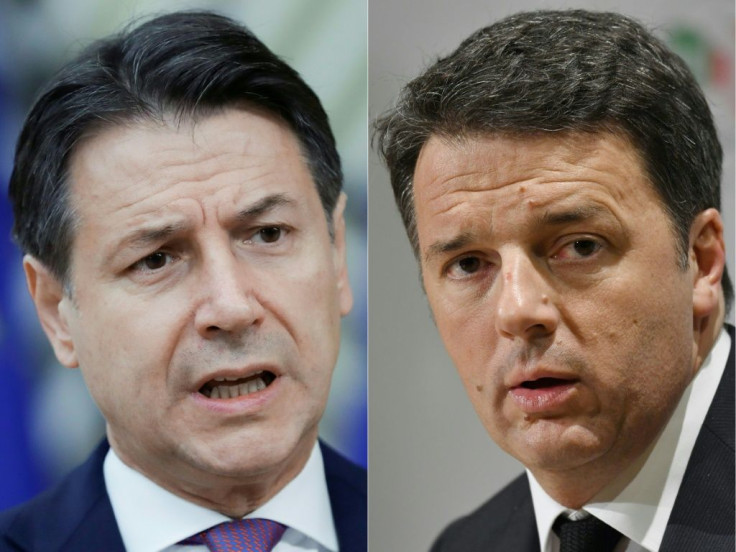Italian PM Battles To Keep Government Afloat, Will Head To Parliament
Italian Prime Minister Giuseppe Conte was battling Thursday to keep his government afloat after a junior coalition partner pulled out, sparking a political crisis in the middle of a raging pandemic.
A day after former premier Matteo Renzi withdrew his Italia Viva party, depriving the government of its parliamentary majority, the key remaining coalition members rushed to support Conte.
The populist Five Star Movement (M5S) and the centre-left Democratic Party (PD) vented their outrage at Renzi and hinted they would try to fill the gap he left with opposition lawmakers.
Conte meanwhile paid a visit to President Sergio Mattarella, the ultimate arbiter of Italian politics, and late Thursday Parliament announced that the premier would address the Chamber of Deputies on Monday, and the Senate on Tuesday morning.
Confidence votes are expected in each body after Conte's speeches. The real test will come from the Senate where, following Renzi's withdrawal, Conte is not assured a majority of votes.
The prime minister could theoretically still patch things up with Renzi by giving his party a bigger role in a reshuffled cabinet, but M5S and PD effectively ruled this out.
Alessandro Di Battista, a leading M5S figure, said his party was done with Renzi, saying "he'll never be let in again", while PD leader Nicola Zingaretti denounced Italia Viva's "political unreliability".
Opinion polls show widespread public dismay at the crisis, which risks leaving the eurozone's third biggest economy rudderless at a critical time.
Another 522 deaths from coronavirus were recorded Thursday, taking the national total to almost 81,000, while the pandemic has plunged the economy into deep recession.
Renzi announced on Wednesday the resignation of two cabinet ministers and a junior minister, and with them went Italia Viva's 18 senators -- and Conte's majority in the upper parliamentary house.

Replacing them will likely require intense horse-trading and potentially grubby deals, that were once anathema to the M5S, a protest party founded by a stand-up comedian.
But it has lost its anti-establishment edge over years in government and now appears more than willing to do what it takes to stay in power.
M5S Foreign Minister Luigi Di Maio appealed to "all pro-Europe builders in parliament who, like this government, want to give Italy an opportunity for recovery and redemption".
If Conte and his partners cannot restore their parliamentary majority, the prime minister would have to resign, leaving the fallback options of a grand coalition government or snap elections.
Opinion polls point to victory in an election for the right-wing opposition led by Matteo Salvini's nationalist and eurosceptic League party.
Meanwhile government business continued, with a cabinet meeting Thursday to approve new aid for businesses hit by coronavirus shutdowns.
Conte was an obscure law professor before being appointed a technocratic head of the government in 2018, but has already proved his political survival skills.
His first coalition included the M5S and Salvini's League, but after the latter withdrew in August 2019, Conte created a new government with the M5S and PD.
The latest crisis followed weeks of criticism from Renzi over the government's handling of the pandemic and Conte's personal leadership style.
The trigger was the cabinet's approval of plans to spend a 220-billion-euro ($264 billion) European Union recovery fund, which Renzi warned were too focused on vote-winning handouts rather than on structural reforms.
The spending package must still be approved by parliament before being sent by April to Brussels -- where many officials are hoping the turmoil in Italy will soon be resolved.
"To the extent that I've long since given up trying to understand all the intricacies of Italian political life, I'm drawing comfort from the fact that in the end, Italy seems to always be able to find solutions," one senior eurozone official told AFP.
© Copyright AFP {{Year}}. All rights reserved.




















